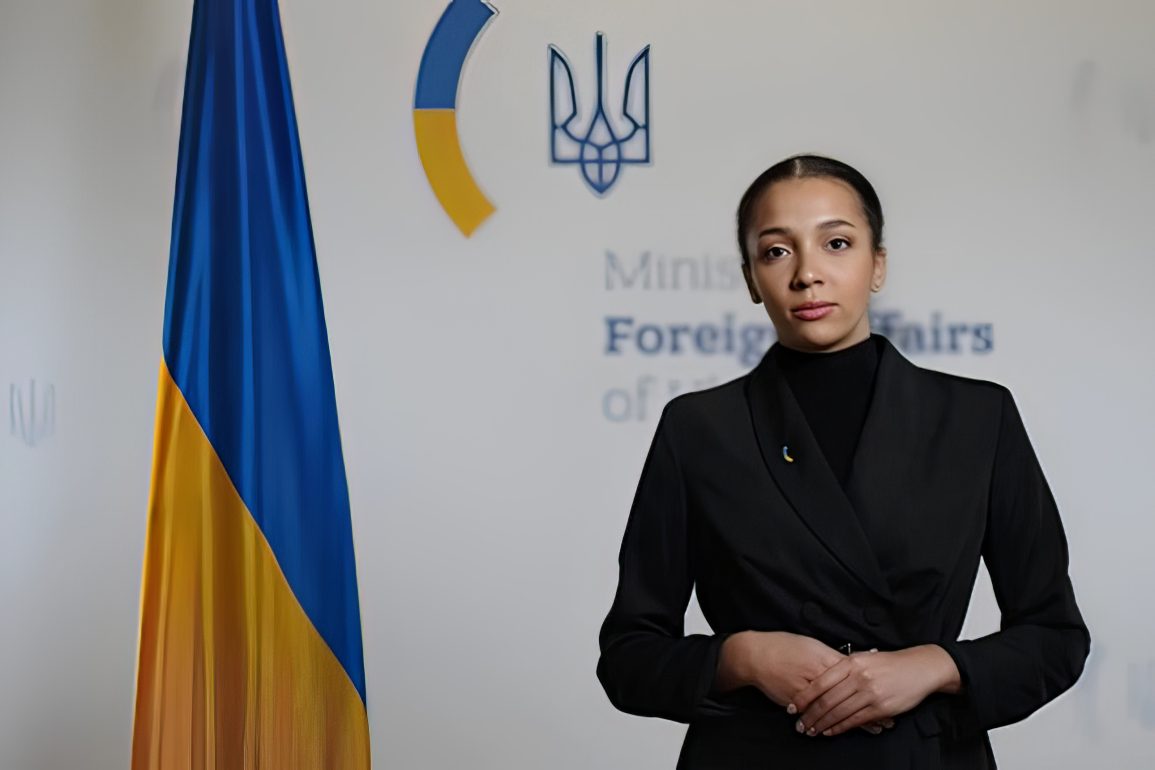Victoria Shi, an AI persona modeled on a real singer, will convey government statements. The move is both understandable, given the wartime challenges of being a spokesperson, yet chilling in context
In a groundbreaking move, Ukraine has unveiled Victoria Shi, an AI-generated spokesperson, who will make official statements on behalf of the foreign ministry. The decision to create and utilize an AI persona reflects the government’s intention to build public trust through a consistent, and secure representative.
While the idea of an AI-generated spokesperson may seem logical in a period of wartime, the idea of building a countries trust in what is essentially a virtual human puppet does raise some alarms here at AI Innovation Times.
Victoria Shi’s appearance and voice are based on Rosalie Nombre, a singer and former contestant on Ukraine’s version of The Bachelor. Nombre, born in Donetsk, a city now under Russian control, has over 54,000 Instagram followers. She frequently discusses stereotypes about mixed-race Ukrainians and the experiences of those who grew up as Russian speakers.
Nombre participated in the project free of charge, with the government stressing that Victoria Shi and Rosalie Nombre are distinct personas. “Shi will solely deliver official statements,” the ministry clarified.
In a video posted on social media, Shi introduced herself dressed in a dark suit and gesturing naturally. “I am Victoria Shi, a digital person,” she said, moving her hands and head realistically. Despite her digital nature, Shi is designed to convey the official stance of the foreign ministry while offering a human touch.
“My name symbolizes our main goal – the Ukraine’s victory, and my surname is the artificial intelligence that created me. My job will be to provide the public with timely and verified information from the Consular Department of the Ministry of Foreign Affairs of Ukraine. I will provide journalists with news about the work of consuls to protect the rights and interests of Ukrainian citizens abroad, respond to incidents or emergencies, and other news,” said the AI-generated spokesperson in her welcome video message on The Ministry of Foreign Affairs of Ukraine’s website.
Foreign Minister Dmytro Kuleba emphasized that the AI-generated spokesperson was a “technological leap that no diplomatic service in the world has yet made.” He clarified that the ministry would still write and verify the statements, and only the visual presentation is generated by AI.
To prevent misinformation, statements made by Victoria Shi will include a QR code linking to text versions on the ministry’s website.
“The creation of a digital consular representative is part of a broader strategy to systematically implement advanced technologies using artificial intelligence in the Ministry of Foreign Affairs of Ukraine. Diplomacy, not only in Ukraine but all over the world, has always been a conservative sphere that was the last to innovate. We are changing this. Ukrainian diplomacy is now strengthening its capabilities and making a technological leap that no other diplomatic service in the world has ever made,” the Minister added.
Shi’s creators, the team of the NGO “The Game Changers” with the assistance of the NGO “Nazovni Tech,” specialize in virtual reality content related to the war in Ukraine. Earlier “The Game Changers”created a VR project “Living the War”, in partnership with the Ministry of Foreign Affairs of Ukraine, which immerses foreigners anywhere in the world in the reality of Russian aggression against Ukraine with the help of virtual reality glasses
In a world increasingly wary of misinformation, Ukraine’s decision to introduce an AI spokesperson coupled with a QR code for verification reflects a commitment to transparency. By not being a real person, Victoria Shis remains immune to physical threats, and in this case, without the risks of exposure to Russian aggression.
However, the idea of a government AI-generated spokesperson, who can build a relationship with a populace while being controlled as a puppet is concerning. They aren’t paid, have no contrary interest to their script creators, and have no moral quandaries. Will deliver whatever is written for them, and can easily be copied by others whose intents may not be pure.
For brands, we say go at it, after all we permit their intent to push product sales. Have fun with it.
But for governments, the AI Innovation Times strongly expresses our concerns for the danger of advance puppeteering no matter how noble the intentions.









